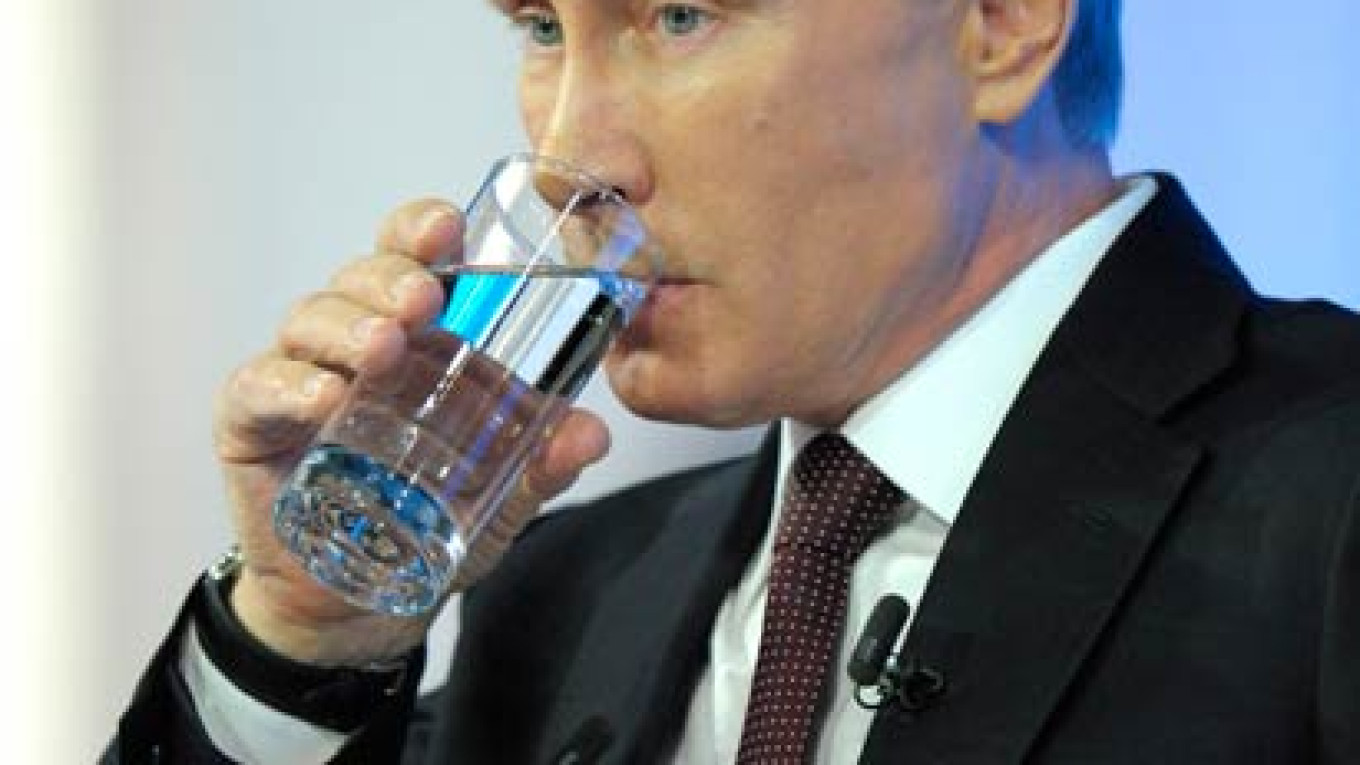President Vladimir Putin answered 81 questions during his annual televised call-in program on Thursday — a tiny fraction of the more than 2.5 million that were submitted before the show began.
The call-in, Putin's 12th such event, started at noon and lasted 3 hours 56 minutes, about an hour shorter than last year's record 4-hour 48-minute marathon, during which he answered 85 questions, RIA Novosti reported.
Organizers of the state-run television program said they had received more than 2.5 million question submissions as of an hour before the show, including more than 1.8 million phone calls and 346,000 text messages, Interfax reported. The organizers added that more than 175,000 questions had been submitted via the Internet.
Putin's public question-and-answer session, the first of which was held in 2001, also featured a number of prepared segments with questions from various outside locations. In the recently annexed city of Sevastopol in Crimea, reporters took questions from a crowd of a few hundred people gathered along the waterfront, while members of the Valdai discussion club, including German political analyst Alexander Rahr, posed questions from a television studio in Berlin.
U.S. intelligence leaker Edward Snowden made an appearance in a pre-recorded video, asking Putin a question about the Russian government's surveillance efforts.
About half of Putin's responses dealt with Russia's actions in Ukraine and international relations. But the president also answered a number of personal pleas from various Russian towns, as was common in previous years' shows, and answered several questions from citizens affected by flooding in Russia's Far East last year.
A Message from The Moscow Times:
Dear readers,
We are facing unprecedented challenges. Russia's Prosecutor General's Office has designated The Moscow Times as an "undesirable" organization, criminalizing our work and putting our staff at risk of prosecution. This follows our earlier unjust labeling as a "foreign agent."
These actions are direct attempts to silence independent journalism in Russia. The authorities claim our work "discredits the decisions of the Russian leadership." We see things differently: we strive to provide accurate, unbiased reporting on Russia.
We, the journalists of The Moscow Times, refuse to be silenced. But to continue our work, we need your help.
Your support, no matter how small, makes a world of difference. If you can, please support us monthly starting from just $2. It's quick to set up, and every contribution makes a significant impact.
By supporting The Moscow Times, you're defending open, independent journalism in the face of repression. Thank you for standing with us.
Remind me later.


